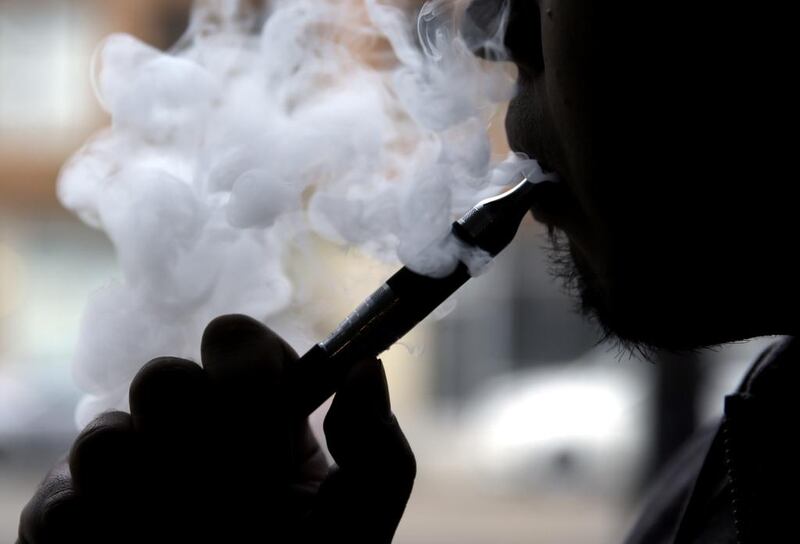ABU DHABI // E-cigarettes remain unlicensed for import and sale, despite growing evidence that they are much safer than tobacco and are a valuable aid in helping smokers to quit.
A review of e-cigarette safety by Public Health England last year found that while “vaping” has not been proven completely safe, the toxic components of tobacco that cause smoking-related disease, such as tar and carbon monoxide, are absent from e-cigarettes.
Chemicals present in most e-cigarettes had not been associated with any serious risk, the study found.
“It had previously been estimated that e-cigarettes are about 95 per cent safer than smoking. This appears to remain a reasonable estimate,” it said.
In June 2014, the Royal College of Physicians in the UK reported: “On the basis of available evidence e-cigarettes could lead to significant falls in the prevalence of smoking, prevent many deaths and episodes of serious illness, and help to reduce the social inequalities in health that tobacco smoking currently exacerbates.”
Two reviews in the same year found that e-cigarettes were probably safer than tobacco smoke, that e-cigarette vapour contained far fewer carcinogens than tobacco smoke and that e-cigarettes “impart a lower potential disease burden” than traditional cigarettes.
Electronic nicotine delivery systems, of which e-cigarettes are the most common type, do not burn or use tobacco leaves. Instead, they use heat to convert a solution into vapour, which the user inhales.
Most allow users to obtain a nicotine hit without the use of tobacco, although e-cigarette liquids are also available without nicotine.
“E-cigarette smoking is less harmful than shisha or combustible cigarettes, in terms of exposure to tar or other carcinogens, which are equal to nil in e-cigarettes,” said Dr Trilok Chand, a specialist in respiratory medicine at Burjeel Hospital in Abu Dhabi.
“It can give you a small amount of nicotine, and some flavouring agents, although propylene glycol in the liquid can cause irritation in the throat or airways.”
When it comes to passive smoking, e-cigarettes may have some advantages over traditional cigarettes or shisha, Dr Chand said. “E-cigarettes produce the vapour of nicotine, which does not travel far in the environment,” he said.
However, he claimed that smoking e-cigarettes in the presence of a child was not safe. “It can cause irritation or flare up asthma or other allergic airway diseases.”
Because they are unlicensed, e-cigarettes are difficult to obtain in the UAE and are therefore not widely used, but Dr Chand believes that in the future they will be more prevalent than traditional cigarettes.
Nevertheless, despite the evidence that e-cigarettes can help smokers to quit, he does not recommend their use.
“E-cigarettes are a relatively new nicotine replacement therapy, but nicotine is highly addictive,” he said. “We should not encourage people to use e-cigarettes to quit smoking shisha or traditional cigarettes.”
arizvi2@thenational.ae






